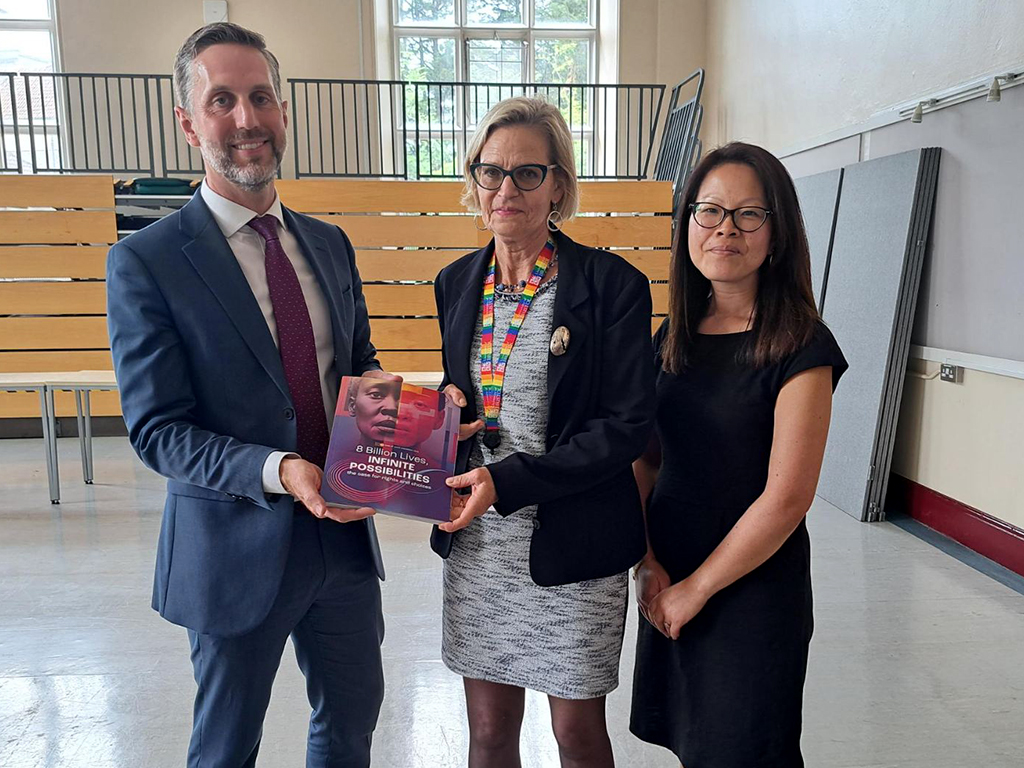On 12th June, the University hosted a visit from the United Nations Population Fund (UNFPA) London Representation Office, both to showcase our joint research and to look at the future direction the partnership will be taking.
Since 2019, this mutually beneficial partnership has enabled the University’s academics and our research to be connected to relevant UNFPA conferences and parliamentary discussions, and to be profiled in TransformU, the UNFPA’s university network of over 100 members, of which the University is a founding member. Additionally, over the past 2 years, our post-graduate students and have had access to a six-month PhD internship at the London Office.
PARC have worked closely with UNFPA Kenya on our capstone programme on realising African countries’ ICPD25 commitments to end gender-based violence, an aim that aligns with UNFPA’s overarching goal to eradicate GBV by 2030, part of Sustainable Development Goal 5 (SDG5).

Following our internal meetings, an afternoon of talks showcased the University’s research on FGM/C to the academic and wider community. The presentations covered a range of amazing projects, including researchers working with NGOs to co-develop alternative rites of passage which do not involve FGM/C but do preserve local traditions, and a look at the distribution of FGM/C preferences across Arsi Oromo social networks in Ethiopia. We also heard an update on the PARC capstone research – which is soon to move forward with a co-creation workshop, bringing together decision-makers and community representatives together.
The University will also be supporting UNFPA’s Bodyright campaign, which is focused towards a younger audience and advocates for online image abuse to be taken as seriously as copyright infringement by technology companies and policy-makers.

Currently UNFPA also offers a six-month post-graduate internship offered in the London office which could potentially be expanded into country offices. The University of Bristol’s work as a founding member of TransformU will also continue.
We asked UNFPA London Chief Matt Jackson why the agency chose Bristol as their university partner, and he said:
There were so many people involved – we had the layers. The interest was there and it was a passionate interest, not just in the research that was happening at the time. […] It’s a unique and multi-pronged relationship.

